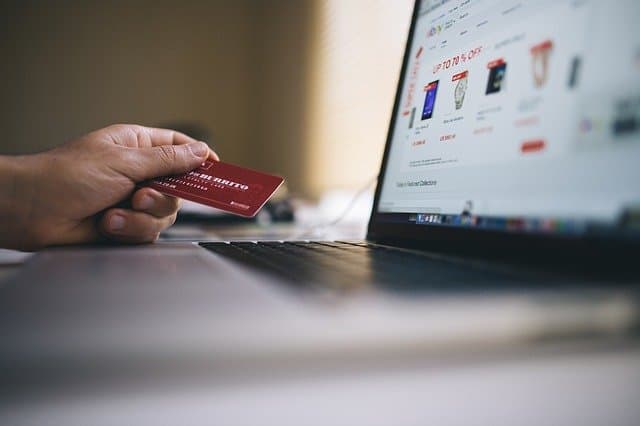A merchant account is a payment processing account for firms that banks regard as high-risk. Because high-risk firms are more likely to experience chargebacks, they must pay higher costs for merchant services. The bank may set a rolling reserve on your account if the company has a high chargeback risk or a history of chargebacks and refunds. The amount put aside to protect against chargebacks and other forms of fraud.
Some credit card processors refuse to give merchant accounts for Kratom or marijuana because they are not legal in many countries. Others are prepared to provide merchant accounts for Kratom, but you can anticipate a more extended approval procedure and prices reflecting Kratom’s high-risk processing status. This article will discuss why a high-risk kratom merchant account is required for the kratom industry.
What is Kratom?
You’ve probably heard of Kratom (Mitragyna speciosa), a herbal supplement widely used in Southeast Asia to boost energy and relieve aches and pains. Mitragynine and 7-hydroxy mitragynine are two of the alkaloid compounds found in kratom. While Kratom is a moderate stimulant in low dosages, it may provide an opiate-like high in large quantities. The Drug Enforcement Administration (DEA) presently lists Kratom as a “drug of concern,” and the Food and Drug Administration (FDA) has not yet certified it for any medicinal purpose despite its recent growth in usage across many countries.
What is a high-risk merchant account?
A High-Risk Merchant Account is a bank account that exclusively accepts payments by credit cards or debit cards and other electronic payment methods. If a company plans to do business through electronic means, it must establish a merchant account. The term “high-risk merchant account” refers to a payment processing account for firms deemed high risk by banks. Merchant fees for high-risk organizations are higher since they are more susceptible to chargebacks. While a merchant account may be used with a personal or company account, it cannot completely replace one. It cannot be used for private transactions or substitute for any other account form.
Why is kratom a high-risk investment?
Regardless of how popular a new product, like Kratom, is, rules and standards must follow to keep items on the market safe for customers. Acquiring banks and payment processors are aware of this and adhere to the requirements established by regulatory bodies. Consequently, merchants wishing to sell kratom goods online or in-store need high-risk payment processing solutions in particular. Fortunately, there are kratom payment options available on the market. However, due to the high-risk label that kratom products now bear, payment acceptance alternatives are restricted. Aside from the federal government’s tight rules, the Kratom business often has higher than average chargeback percentages than the others. For example, if customers say they are dissatisfied with Kratom items and seek refunds, but merchants refuse to return the money for any reason. The customers may then contact their issuing bank to get chargebacks, increasing the merchant chargeback percentages. Retailers should offer a clear and flexible return policy to prevent a chargeback. However, you may recoup these losses in the long term, making the investment worthwhile. If you get too many chargebacks, your merchant account may terminate and may bar you from acquiring another account with other payment processors. If your consumer is disappointed, refunding them is the most excellent strategy you can adopt to ensure that your kratom merchant account is not compromised. Unfortunately, it is just a part of the cost of doing business in the kratom merchant account market. You will lose money on these types of sales, but it is beneficial if your organization can demonstrate that the results justify the expenditure.
What is the need for high-risk merchant accounts?
Like marijuana and CBD, Kratom is regarded as a “high risk” sector, owing to its uncertain legal position. Age-restricted purchases, severely regulated commodities, sectors with higher-than-normal chargeback rates, and other factors might pose a danger. For their part, the US Food and Drug Administration has taken action against kratom imports in some circumstances. While it is a good practice to confirm that a product is accessible for clients before charging for it, there are certain instances when firms charge upon order submission and subsequently are unable to fulfill the purchase. Chargebacks may arise as a consequence of this. Chargebacks that are more than usual are another reason why sectors may be rated high risk.
A more significant issue for payment processors is that Kratom includes a few natural ingredients that make it potentially a restricted drug and that those who use it might overdose. Most payment processors are also concerned about answering government officials due to legal difficulties. Surprisingly, most Kratom users have nothing but great things to say about it. Some individuals who suffer from arthritis, anxiety, depression, and other sorts of pain say that it is the only natural drug that significantly alleviates their symptoms. So to avail the user benefits, the kratom industry must shift to high-risk merchant accounts and continue operating.
Searching for a kratom credit card processor
The first step is to identify whether or not Kratom is legal in your state since processors will not allow you to register a merchant account if you are selling an unlawful substance. If you are legally permitted to sell Kratom, look for high-risk credit card processors that clearly say they will deal with kratom suppliers. It would be helpful if users don’t attempt to hide the specifics of what you’re offering. Processors will ultimately find out, and you will have your merchant account closed and may be fined or prosecuted for fraud. If all of your domestic alternatives have been explored, you may need to pursue an offshore merchant account. As the name indicates, these accounts are issued by processors outside of the United States, which means they are not subject to the same restrictions as domestic suppliers. On the other hand, an offshore merchant account will set you back a pretty penny.
Conclusion
The kratom business may do further scientific studies to safely bring this therapeutic product to market and govern it, similar to how they attempt to control the medical marijuana sector. Different strains of kratom are known to provide different effects. However, such hurdles would very certainly make Kratom more costly to manufacture and sell on the open market. When it comes to credit card payment options, it’s easy for retailers to believe that one method is preferable to the others. In reality, the most excellent choice is the one that best fulfills the organization’s requirements.














